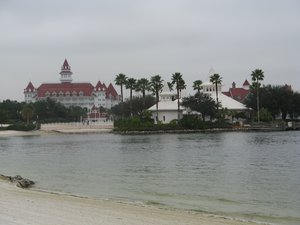- published: 24 May 2015
- views: 20588
-
remove the playlistAlexander Nevsky
-
remove the playlistAlexander Nevsky Interviews
- remove the playlistAlexander Nevsky
- remove the playlistAlexander Nevsky Interviews
- published: 09 Aug 2013
- views: 169879
- published: 20 Jun 2012
- views: 53807
- published: 16 Dec 2014
- views: 18705
- published: 13 Oct 2008
- views: 851500
- published: 23 Apr 2015
- views: 1224
- published: 26 Mar 2011
- views: 90180
- published: 18 Jan 2013
- views: 176439
- published: 29 Apr 2011
- views: 143794

Alexander Nevsky (Russian: ![]() Алекса́ндр Яросла́вич Не́вский (help·info), Aleksandr Yaroslavich Nevskiy; pronounced [ɐlʲɪˈksandr jɪrɐˈslavʲɪtɕ ˈnʲefskʲɪj]; 30 May 1220 – 14 November 1263, proclaimed Saint of the Russian Orthodox Church by Metropolite Macarius in 1547) was the Prince of Novgorod and Grand Prince of Vladimir during some of the most trying times in the city's history. Commonly regarded as the key figure of medieval Rus, Alexander was the grandson of Vsevolod the Big Nest and rose to legendary status on account of his military victories over the German and Swedish invaders while employing collaborationist policies towards the powerful Golden Horde.
Алекса́ндр Яросла́вич Не́вский (help·info), Aleksandr Yaroslavich Nevskiy; pronounced [ɐlʲɪˈksandr jɪrɐˈslavʲɪtɕ ˈnʲefskʲɪj]; 30 May 1220 – 14 November 1263, proclaimed Saint of the Russian Orthodox Church by Metropolite Macarius in 1547) was the Prince of Novgorod and Grand Prince of Vladimir during some of the most trying times in the city's history. Commonly regarded as the key figure of medieval Rus, Alexander was the grandson of Vsevolod the Big Nest and rose to legendary status on account of his military victories over the German and Swedish invaders while employing collaborationist policies towards the powerful Golden Horde.
From Tales of the Life and Courage of the Pious and Great Prince Alexander found in the Second Pskovian Chronicle, circa 1260–1280, comes one of the first known references to the Great Prince:
"By the will of God, prince Alexander was born from the charitable, people-loving, and meek the Great Prince Yaroslav, and his mother was Theodosia. As it was told by the prophet Isaiah: 'Thus sayeth the Lord: I appoint the princes because they are sacred and I direct them.' "... He was taller than others and his voice reached the people as a trumpet, and his face was like the face of Joseph, whom the Egyptian Pharaoh placed as next to the king after him of Egypt. His power was a part of the power of Samson and God gave him the wisdom of Solomon ... this Prince Alexander: he used to defeat but was never defeated ..."
This article is licensed under the Creative Commons Attribution-ShareAlike 3.0 Unported License, which means that you can copy and modify it as long as the entire work (including additions) remains under this license.

![]() Birger Jarl (help·info) (c. 1200 – 21 October 1266), or Birger Magnusson, was a Swedish statesman, Jarl of Sweden and a member of the House of Bjelbo, who played a pivotal role in the consolidation of Sweden. Birger also led the Second Swedish Crusade, which established Swedish rule in Finland. Additionally, he is traditionally attributed to have founded the Swedish capital, Stockholm around 1250. Birger used the Latin title of Dux Sweorum which in English equals Duke of Sweden, and the design of his coronet combined those used by continental European and English dukes.
Birger Jarl (help·info) (c. 1200 – 21 October 1266), or Birger Magnusson, was a Swedish statesman, Jarl of Sweden and a member of the House of Bjelbo, who played a pivotal role in the consolidation of Sweden. Birger also led the Second Swedish Crusade, which established Swedish rule in Finland. Additionally, he is traditionally attributed to have founded the Swedish capital, Stockholm around 1250. Birger used the Latin title of Dux Sweorum which in English equals Duke of Sweden, and the design of his coronet combined those used by continental European and English dukes.
It is known that Birger grew up and spent his adolescence in Bjälbo, Östergötland but the exact date of his birth remains uncertain and available historical sources are contradictory. Examinations of his mortal remains indicate that he was probably about 50 upon his death in 1266 which would indicate a birth around 1216. However, his father Magnus Minnesköld is assumed to have died no later than 1210, which would lead to an assumed birth a few years earlier. Under any circumstance, he was the son of Ingrid Ylva, who according to Olaus Petri was a daughter of Sune Sik and granddaughter to Sverker the Elder, which would make Birger a matrilineal member of the House of Sverker. His brothers or half-brothers — Eskil, Karl, and Bengt — were all born long before 1200, and it can therefore be assumed that they had another mother. He was also a nephew of the jarl Birger Brosa from the House of Bjelbo. The combination of this background proved to be of vital importance.
This article is licensed under the Creative Commons Attribution-ShareAlike 3.0 Unported License, which means that you can copy and modify it as long as the entire work (including additions) remains under this license.
- Loading...

-
 107:51
107:51Alexander Nevsky( with embedded subtitles)
Alexander Nevsky( with embedded subtitles)Alexander Nevsky( with embedded subtitles)
This film was produced in USSR in 1938. Director Sergei Eisenstein wrote a theoretical thesis "Vertical Montage" analyzing one of its episode "Battle on Ice". According to that thesis, there music and image are synchronized by the common linear figure. Music was composed by Sergei Prokofiev. You can watch this film here is a more clear image( Mosfilm official), with subtitles by YouTube CC function. https://www.youtube.com/watch?v=Qnaj12zmBeQ The film belongs to public domain. This video file can be downloaded from Internet Archive https://archive.org/details/AlexanderNevsky_201408 For more academic copy right status of this film See :http://mkrf.ru/registr/detail.php?ID=110055116 (Official site of Russian Federation Ministry of Culture) -
 6:41
6:41Alexander Nevsky - "The Battle of the Ice"
Alexander Nevsky - "The Battle of the Ice"Alexander Nevsky - "The Battle of the Ice"
Music: Sergei Prokofiev Yuri Temirkanov conducting the St. Petersburg Philharmonic Orchestra -
 38:30
38:30Prokofiev. Alexander Nevski. Podles. Barcelona Symphony Orchestra (OBC)
Prokofiev. Alexander Nevski. Podles. Barcelona Symphony Orchestra (OBC)Prokofiev. Alexander Nevski. Podles. Barcelona Symphony Orchestra (OBC)
Prokofiev, Alexander Nevski. Ewa Podles, contralto (27:00) Orquestra simfònica de Barcelona i nacional de Catalunya (OBC) [Barcelona Symphony Orchestra] Pablo González, director / conductor L'Auditori, Barcelona, 2010 HD 720p -
 38:42
38:42S Prokofiev 1891~1953 Cantata "Alexander Nevsky", Op 78 36
S Prokofiev 1891~1953 Cantata "Alexander Nevsky", Op 78 36S Prokofiev 1891~1953 Cantata "Alexander Nevsky", Op 78 36
-
 39:23
39:23Prokofiev - Alexander Nevsky op. 78 (Complet)
Prokofiev - Alexander Nevsky op. 78 (Complet)Prokofiev - Alexander Nevsky op. 78 (Complet)
Serge Prokofiev - Alexander Nevsky op. 78 (complet) Elena Obraztsova, Mezzosopran London Symphony Chorus London Symphony Orchestra CLAUDIO ABBADO -
 7:01
7:01Battle of the Neva. Alexander Nevsky vs. Birger Jarl (1/2)
Battle of the Neva. Alexander Nevsky vs. Birger Jarl (1/2)Battle of the Neva. Alexander Nevsky vs. Birger Jarl (1/2)
Aggressive Swedish, Danish and Teutonic Northern Crusades against Finnic and Baltic pagans didn't stop at the border of the Russian Orthodox civilization. Wishing to benefit from Russia's weakened position after the Mongol invasion the Swedish attackers planned to capture Russia's strategic access to the Baltic. The young Novgorodian prince Alexander Nevsky met the invaders on the shores of the Neva River and inflicted a heavy defeat on them. -
 39:24
39:24Prokofiev - Temirkanov : Alexander Nevsky, Op.78
Prokofiev - Temirkanov : Alexander Nevsky, Op.78Prokofiev - Temirkanov : Alexander Nevsky, Op.78
Sergei Prokofiev (1891-1953) Alexander Nevsky, Op.78 (1938-39) 1. Russia under the Mongolian Yoke 2. Song about Alexander Nevsky 3. The Crusaders in Pskov 4. Arise, Men of Russia 5. The Battle on Ice 6. The Field of the Dead 7. Alexander's Entry into Pskov Ketevan Kemoklidze, Mezzo-soprano Saint Petersburg Philharmonic Orchestra Choir of the National Academy of Santa Cecilia Yuri Temirkanov, conductor 30.08.2012 Eglise de Sainte-Bernadette, Annecy, France Annecy Classic Festival 2012 -
 12:43
12:43Prokofiev - Alexander Nevsky 5 The Battle on Ice
Prokofiev - Alexander Nevsky 5 The Battle on IceProkofiev - Alexander Nevsky 5 The Battle on Ice
Alexander Nevsky Op. 78 USSR State Academic Symphony Orchestra Conductor E. Svetlanov The Republican Choir Kapella Artistic director A. Yurlov 1966 recording Прокофьев - Александр Невский Ор. 78: Ледовое побоище Государственный Академический Симфонический Оркестр СССР Республиканская хоровая капелла -
 103:39
103:39Alexandre Nevski (Aleksandr Nevskii) - 1938 - Sergeï Eisenstein - VOSTFR
Alexandre Nevski (Aleksandr Nevskii) - 1938 - Sergeï Eisenstein - VOSTFRAlexandre Nevski (Aleksandr Nevskii) - 1938 - Sergeï Eisenstein - VOSTFR
Dans la Russie du XIIe siecle, Alexandre Nevski, prince pacifique d'un peuple de pecheurs, prend le commandement d'une armee pour repousser les hordes barbares qui ont envahi son pays. ALEXANDRE NEVSKI, épopée historique, est destiné à toucher un vaste public. D'où la simplicité du récit, son esprit folklorique et la dimension populaire que lui donnent les auteurs. Réalisé par: Sergei Mikhailovich Eisenstein, Dmitri Vasilyev, Luke Rold Avec: Nikolai Tcherkassov, Nikolai Okhlopkov, Andrei Abrikosov Genre: Drame , Historique Nationalité: Russe -
 103:31
103:31Александр Невский / Alexander Nevskij
Александр Невский / Alexander NevskijАлександр Невский / Alexander Nevskij
Смотрите и скачивайте наши фильмы в App Store - https://itunes.apple.com/ru/app/mosfil-m/id463145701?mt=8 Google Play - https://play.google.com/store/apps/details?id=ru.mosfilm Фильм Сергея Эйзенштейна - классика мирового кинематографа. Этот фильм знаменит фразой, которую его создатели вложили в уста Александра Невского: «А если кто с мечом к нам войдет — от меча и погибнет. На том стояла, и стоять будет земля русская!». История борьбы великого князя-полководца с тевтонскими рыцарями и великой победы в Ледовом побоище. Фильм снимался по социальному заказу в преддверии грядущей войны с фашистской Германией. Однако сразу после выхода картины в прокат, был подписан знаменитый пакт о ненападении, и все копии картины были изъяты из кинотеатров. Зритель вновь увидел фильм лишь в 1941 году, когда пакт о ненападении был нарушен - Сталинская премия I степени С.Эйзенштейну, Н.Черкасову, А.Абрикосову, П. Павленко. (1941) - Премия за режиссуру на XIV МКФ в Каннах (Франция). (1941)
- Alexander Nevsky
- Andrei II of Russia
- Andrey of Gorodets
- Armour
- Baltic Sea
- Battle of Kulikovo
- Battle of the Ice
- Battle of the Neva
- Belgrade
- Boyars
- Bulgaria
- Calendar of saints
- Canonization
- Cantata
- Chronicle
- Chronicler
- Daniel of Moscow
- Daumantas of Pskov
- Dmitry of Pereslavl
- Estonia
- Feast day
- Foot soldier
- Georgia (country)
- Golden Horde
- Gorodets
- Grand Prince
- Great Patriotic War
- Great Prince
- Hermann of Dorpat
- Icon
- Incorrupt
- Izhora (river)
- Joseph Stalin
- Khan (title)
- Kniaz'
- Knight
- Lake Peipus
- Lavra
- Livonian Knights
- Livonian Order
- Middle Ages
- Military order
- Monastic vows
- Mongols
- Neva
- Nevsky Avenue
- Novgorod
- Patron saint
- Pereslavl-Zalessky
- Peter I of Russia
- Politician
- Prince
- Prince of Novgorod
- Princes of Novgorod
- Proverb
- Pskov
- Relic
- Religious name
- Roman Curia
- Rostov
- Rus' (region)
- Russian language
- Russian Navy
- Saint
- Saint Petersburg
- Saint symbology
- Sarai (city)
- Sartaq Khan
- Serbia
- Sergei Eisenstein
- Sergei Prokofiev
- Shrine
- Smolensk
- Sofia
- Soviet Union
- St. Petersburg
- Swedish people
- Synaxarion
- Synaxis
- Tallinn
- Tatar
- Tbilisi
- Teutonic Knights
- Ust-Izhora
- Vassal
- Vision (religion)
- Vitebsk
- Vladimir
- Vladimir-Suzdal
- Volga
- Wikipedia Media help
- Wikipedia Persondata
- WP IPA for Russian
- Yaroslav of Tver
- Yaroslavl
'Alexander Nevsky' is featured as a movie character in the following productions:
The Battle of Russia (1943)
Actors: Anatole Litvak (writer), Anthony Veiller (writer), Nikolai Cherkasov (actor), Frank Capra (producer), Julius J. Epstein (writer), Adolf Hitler (writer), Anthony Veiller (actor), Hermann Göring (actor), Adolf Hitler (actor), Benito Mussolini (actor), Tsar Nicholas II (actor), Kaiser Wilhelm II (actor), Joseph Stalin (actor), Frank Capra (director), Dimitri Tiomkin (composer),
Plot: In this installment of the "Why We Fight" propaganda series, we learn about the events on the Russian front of World War II. We learn about Russia's heroic resistance to invasion in the past and how those qualities were called upon in the current war. We also learn about Russian tenacity and their determination to win against the seemingly invincible forces of Nazi Germany in the bloodiest fighting of the war.
Keywords: based-on-book, country-name-in-title, great-patriotic-war, propaganda, red-army, russian-soldier, sequel, soviet-troops, stalingrad, uniformGenres: Documentary, History, War,
Nevsky, Alexander Filmography
-
2014, role: actor , character name: Vladimir Kazatov
-
2014, role: producer
-
2014, role: director
-
2010, role: actor , character name: Himself - Presenter
-
2010, role: actor , character name: Detective Orloff
-
2010, role: actor , character name: Russian Journalist
-
2010, role: producer
-
2009, role: actor , character name: Himself -Host
-
2009, role: producer
-
2007, role: producer
-
2007, role: actor , character name: Wolf
-
2007, role: writer
-
2005, role: writer
-
2005, role: actor , character name: Alexander
-
2005, role: producer
-
2004, role: actor , character name: Vlad Stepanov
-
2004, role: producer
-
2004, role: writer
-
2003, role: actor , character name: Peter aka Terminator
-
2002, role: actor , character name: Prisoner
-
2000, role: actor , character name: Sergey Ivanov
Nevsky, Alexander Filmography
-
1999, role: editor
-
1999, role: editor
-
1999, role: editor
Nevsky, Alexander Filmography
-
1986, role: miscellaneous crew
-

Alexander Nevsky( with embedded subtitles)
This film was produced in USSR in 1938. Director Sergei Eisenstein wrote a theoretical thesis "Vertical Montage" analyzing one of its episode "Battle on Ice". According to that thesis, there music and image are synchronized by the common linear figure. Music was composed by Sergei Prokofiev. You can watch this film here is a more clear image( Mosfilm official), with subtitles by YouTube CC function. https://www.youtube.com/watch?v=Qnaj12zmBeQ The film belongs to public domain. This video file can be downloaded from Internet Archive https://archive.org/details/AlexanderNevsky_201408 For more academic copy right status of this film See :http://mkrf.ru/registr/detail.php?ID=110055116 (Official site of Russian Federation Ministry of Culture) -

Alexander Nevsky - "The Battle of the Ice"
Music: Sergei Prokofiev Yuri Temirkanov conducting the St. Petersburg Philharmonic Orchestra -

Prokofiev. Alexander Nevski. Podles. Barcelona Symphony Orchestra (OBC)
Prokofiev, Alexander Nevski. Ewa Podles, contralto (27:00) Orquestra simfònica de Barcelona i nacional de Catalunya (OBC) [Barcelona Symphony Orchestra] Pablo González, director / conductor L'Auditori, Barcelona, 2010 HD 720p -

S Prokofiev 1891~1953 Cantata "Alexander Nevsky", Op 78 36
-

Prokofiev - Alexander Nevsky op. 78 (Complet)
Serge Prokofiev - Alexander Nevsky op. 78 (complet) Elena Obraztsova, Mezzosopran London Symphony Chorus London Symphony Orchestra CLAUDIO ABBADO -

Battle of the Neva. Alexander Nevsky vs. Birger Jarl (1/2)
Aggressive Swedish, Danish and Teutonic Northern Crusades against Finnic and Baltic pagans didn't stop at the border of the Russian Orthodox civilization. Wishing to benefit from Russia's weakened position after the Mongol invasion the Swedish attackers planned to capture Russia's strategic access to the Baltic. The young Novgorodian prince Alexander Nevsky met the invaders on the shores of the Neva River and inflicted a heavy defeat on them. -

Prokofiev - Temirkanov : Alexander Nevsky, Op.78
Sergei Prokofiev (1891-1953) Alexander Nevsky, Op.78 (1938-39) 1. Russia under the Mongolian Yoke 2. Song about Alexander Nevsky 3. The Crusaders in Pskov 4. Arise, Men of Russia 5. The Battle on Ice 6. The Field of the Dead 7. Alexander's Entry into Pskov Ketevan Kemoklidze, Mezzo-soprano Saint Petersburg Philharmonic Orchestra Choir of the National Academy of Santa Cecilia Yuri Temirkanov, conductor 30.08.2012 Eglise de Sainte-Bernadette, Annecy, France Annecy Classic Festival 2012 -

Prokofiev - Alexander Nevsky 5 The Battle on Ice
Alexander Nevsky Op. 78 USSR State Academic Symphony Orchestra Conductor E. Svetlanov The Republican Choir Kapella Artistic director A. Yurlov 1966 recording Прокофьев - Александр Невский Ор. 78: Ледовое побоище Государственный Академический Симфонический Оркестр СССР Республиканская хоровая капелла -

Alexandre Nevski (Aleksandr Nevskii) - 1938 - Sergeï Eisenstein - VOSTFR
Dans la Russie du XIIe siecle, Alexandre Nevski, prince pacifique d'un peuple de pecheurs, prend le commandement d'une armee pour repousser les hordes barbares qui ont envahi son pays. ALEXANDRE NEVSKI, épopée historique, est destiné à toucher un vaste public. D'où la simplicité du récit, son esprit folklorique et la dimension populaire que lui donnent les auteurs. Réalisé par: Sergei Mikhailovich Eisenstein, Dmitri Vasilyev, Luke Rold Avec: Nikolai Tcherkassov, Nikolai Okhlopkov, Andrei Abrikosov Genre: Drame , Historique Nationalité: Russe -

Александр Невский / Alexander Nevskij
Смотрите и скачивайте наши фильмы в App Store - https://itunes.apple.com/ru/app/mosfil-m/id463145701?mt=8 Google Play - https://play.google.com/store/apps/details?id=ru.mosfilm Фильм Сергея Эйзенштейна - классика мирового кинематографа. Этот фильм знаменит фразой, которую его создатели вложили в уста Александра Невского: «А если кто с мечом к нам войдет — от меча и погибнет. На том стояла, и стоять будет земля русская!». История борьбы великого князя-полководца с тевтонскими рыцарями и великой победы в Ледовом побоище. Фильм снимался по социальному заказу в преддверии грядущей войны с фашистской Германией. Однако сразу после выхода картины в прокат, был подписан знаменитый пакт о ненападении, и все копии картины были изъяты из кинотеатров. Зритель вновь увидел фильм лишь в 1941 году, когд...
Alexander Nevsky( with embedded subtitles)
- Order: Reorder
- Duration: 107:51
- Updated: 24 May 2015
- views: 20588
- published: 24 May 2015
- views: 20588
Alexander Nevsky - "The Battle of the Ice"
- Order: Reorder
- Duration: 6:41
- Updated: 09 Aug 2013
- views: 169879
- published: 09 Aug 2013
- views: 169879
Prokofiev. Alexander Nevski. Podles. Barcelona Symphony Orchestra (OBC)
- Order: Reorder
- Duration: 38:30
- Updated: 20 Jun 2012
- views: 53807
- published: 20 Jun 2012
- views: 53807
S Prokofiev 1891~1953 Cantata "Alexander Nevsky", Op 78 36
- Order: Reorder
- Duration: 38:42
- Updated: 13 Jul 2011
- views: 110088
- published: 13 Jul 2011
- views: 110088
Prokofiev - Alexander Nevsky op. 78 (Complet)
- Order: Reorder
- Duration: 39:23
- Updated: 16 Dec 2014
- views: 18705
- published: 16 Dec 2014
- views: 18705
Battle of the Neva. Alexander Nevsky vs. Birger Jarl (1/2)
- Order: Reorder
- Duration: 7:01
- Updated: 13 Oct 2008
- views: 851500
- published: 13 Oct 2008
- views: 851500
Prokofiev - Temirkanov : Alexander Nevsky, Op.78
- Order: Reorder
- Duration: 39:24
- Updated: 23 Apr 2015
- views: 1224
- published: 23 Apr 2015
- views: 1224
Prokofiev - Alexander Nevsky 5 The Battle on Ice
- Order: Reorder
- Duration: 12:43
- Updated: 26 Mar 2011
- views: 90180
- published: 26 Mar 2011
- views: 90180
Alexandre Nevski (Aleksandr Nevskii) - 1938 - Sergeï Eisenstein - VOSTFR
- Order: Reorder
- Duration: 103:39
- Updated: 18 Jan 2013
- views: 176439
- published: 18 Jan 2013
- views: 176439
Александр Невский / Alexander Nevskij
- Order: Reorder
- Duration: 103:31
- Updated: 29 Apr 2011
- views: 143794
- published: 29 Apr 2011
- views: 143794
-

Alexander Nevsky talks about his latest Hollywood film 'Black Rose'
And ... we talk to Russian action man Alexander Nevsky about his latest Hollywood film, "Black Rose." Get more of PTR on our website http://rt.com/programs/prime-time-russia FOLLOW us on Twitter http://twitter.com/PrimeTimeRussia LIKE us on Facebook http://www.facebook.com/PrimeTimeRussia Prime Time Russia is the first TV show for an English-speaking audience in Russia. Weekdays from 8-9pm: the latest news, politics, business, sport and cultural events discussed live. A Russian survival guide, venue reviews -- even business start-up advice. -

"Mr. Universe" Alexander Nevsky @ NBC Universal's Golden Globe Awards Afterparty | Af
AfterBuzz TV host Ashley Daniels interviews Alexander Nevsky at the NBC Universal Golden Globes afterparty. Follow Ashley on Twitter@AshleyDaniels Subscribe to AfterBuzz TV's YouTube Channel: http://youtube.com/afterbuzztv All playlists: https://www.youtube.com/user/AfterBuz... HELPFUL LINKS: -AfterBuzz TV YouTube: http://youtube.com/afterbuzztv -AfterBuzz TV iTunes' Artist Page: https://itunes.apple.com/us/artist/af... -AfterBuzz TV Sizzle Reel: https://www.youtube.com/watch?v=QAp1I... -Purchase AfterBuzz TV Merch: http://www.printfection.com/afterbuzztv -Purchase Adventures of Serial Buddies: https://itunes.apple.com/us/movie/adv... -Official Adventures of Serial Buddies website: http://serialbuddies.com/ -Buy Maria Menounos 1st Book: http://www.amazon.com/EveryGirl%201... -Buy Maria ... -

Eugene Symphony interviews Sharon Paul, Chorus Director
Sharon Paul, Director of Eugene Symphony Chorus, talks about her background and the programming for Eugene Symphony's March 19, 2015 concert, which includes Prokofiev's "Alexander Nevsky" and Verdi's Triumphal March. Tickets: 541-682-5000 or www.eugenesymphony.org. Interview recorded at KLCC public radio station in Eugene, Oregon. -

Ewa Podles - Alexander Nevsky
Ewa Podles sings "The field of death" from Prokofiev's "Alexander Nevsky" -

Battle on the Ice - Sergei Prokofiev / Los Angeles Symphonic Winds
Battle on the Ice from Alexander Nevsky by Sergei Prokofiev. Performed by the Los Angeles Symphonic Winds Conducted by Music Director Stephen Piazza Visualization by Maestro Stephen Pizza. Band Transcription by Dr. Joseph Hebert, Loyola University, New Orleans, Louisiana. Edited by Dr. Anthony Purcell and Charles Fernandez -

Adrian Paul and Alexander Nevsky in Moscow
forever young Duncan MacLeod-again visited Moscow in the company of actor and producer Alexander Nevsky and told us about their new film , hair Highlander and dancing at the premiere of the film «Black rose» -

Alexander Nevsky Male Choir - The Bell Rings (Vladimir Pasyukov, profundo)
Pasyukov with a big low G1 at the end. -

Ewa Podleś - Il campo dei caduti - "Alexander Nevsky" (Pesaro, ROF 2014)
(da "Alexander Nevsky", Cantata op.78 - VI) di S.Prokof'ev - Direttore: Carlo Tenan - Contralto: Ewa Podles - Pesaro, XXXV ROF, live 20.8.2014 Grazie a Fabio. -

Ketevan Kemoklidze - Prokofiev's Alexander Nevsky under the baton of Yuri Temirkanov
Prokofiev' s"Alexander Nevsky" Op.78 from closing concert at the Annecy Classic Festival with St. Petersburg Philharmonic Orchestra and Chorus of the Accademia Nazionale di Santa Cecilia under the baton of Yuri Temirkanov recorded by Mezzo Classic-Jazz TV August 2012
Alexander Nevsky talks about his latest Hollywood film 'Black Rose'
- Order: Reorder
- Duration: 6:20
- Updated: 14 Oct 2013
- views: 7328
- published: 14 Oct 2013
- views: 7328
"Mr. Universe" Alexander Nevsky @ NBC Universal's Golden Globe Awards Afterparty | Af
- Order: Reorder
- Duration: 3:07
- Updated: 05 Feb 2015
- views: 80
- published: 05 Feb 2015
- views: 80
Eugene Symphony interviews Sharon Paul, Chorus Director
- Order: Reorder
- Duration: 6:14
- Updated: 17 Mar 2015
- views: 148
- published: 17 Mar 2015
- views: 148
Ewa Podles - Alexander Nevsky
- Order: Reorder
- Duration: 7:43
- Updated: 24 Apr 2013
- views: 7898
- published: 24 Apr 2013
- views: 7898
Battle on the Ice - Sergei Prokofiev / Los Angeles Symphonic Winds
- Order: Reorder
- Duration: 13:46
- Updated: 20 Jan 2014
- views: 22485
- published: 20 Jan 2014
- views: 22485
Adrian Paul and Alexander Nevsky in Moscow
- Order: Reorder
- Duration: 1:29
- Updated: 01 Nov 2013
- views: 1242
- published: 01 Nov 2013
- views: 1242
Alexander Nevsky Male Choir - The Bell Rings (Vladimir Pasyukov, profundo)
- Order: Reorder
- Duration: 5:18
- Updated: 07 Mar 2014
- views: 2777
- published: 07 Mar 2014
- views: 2777
Ewa Podleś - Il campo dei caduti - "Alexander Nevsky" (Pesaro, ROF 2014)
- Order: Reorder
- Duration: 6:30
- Updated: 27 Aug 2014
- views: 381
- published: 27 Aug 2014
- views: 381
Ketevan Kemoklidze - Prokofiev's Alexander Nevsky under the baton of Yuri Temirkanov
- Order: Reorder
- Duration: 5:59
- Updated: 20 Mar 2013
- views: 2115
- published: 20 Mar 2013
- views: 2115
- Playlist
- Chat
- Playlist
- Chat

Alexander Nevsky( with embedded subtitles)
- Report rights infringement
- published: 24 May 2015
- views: 20588

Alexander Nevsky - "The Battle of the Ice"
- Report rights infringement
- published: 09 Aug 2013
- views: 169879

Prokofiev. Alexander Nevski. Podles. Barcelona Symphony Orchestra (OBC)
- Report rights infringement
- published: 20 Jun 2012
- views: 53807

S Prokofiev 1891~1953 Cantata "Alexander Nevsky", Op 78 36
- Report rights infringement
- published: 13 Jul 2011
- views: 110088

Prokofiev - Alexander Nevsky op. 78 (Complet)
- Report rights infringement
- published: 16 Dec 2014
- views: 18705

Battle of the Neva. Alexander Nevsky vs. Birger Jarl (1/2)
- Report rights infringement
- published: 13 Oct 2008
- views: 851500

Prokofiev - Temirkanov : Alexander Nevsky, Op.78
- Report rights infringement
- published: 23 Apr 2015
- views: 1224

Prokofiev - Alexander Nevsky 5 The Battle on Ice
- Report rights infringement
- published: 26 Mar 2011
- views: 90180

Alexandre Nevski (Aleksandr Nevskii) - 1938 - Sergeï Eisenstein - VOSTFR
- Report rights infringement
- published: 18 Jan 2013
- views: 176439

Александр Невский / Alexander Nevskij
- Report rights infringement
- published: 29 Apr 2011
- views: 143794
- Playlist
- Chat

Alexander Nevsky talks about his latest Hollywood film 'Black Rose'
- Report rights infringement
- published: 14 Oct 2013
- views: 7328

"Mr. Universe" Alexander Nevsky @ NBC Universal's Golden Globe Awards Afterparty | Af
- Report rights infringement
- published: 05 Feb 2015
- views: 80

Eugene Symphony interviews Sharon Paul, Chorus Director
- Report rights infringement
- published: 17 Mar 2015
- views: 148

Ewa Podles - Alexander Nevsky
- Report rights infringement
- published: 24 Apr 2013
- views: 7898

Battle on the Ice - Sergei Prokofiev / Los Angeles Symphonic Winds
- Report rights infringement
- published: 20 Jan 2014
- views: 22485

Adrian Paul and Alexander Nevsky in Moscow
- Report rights infringement
- published: 01 Nov 2013
- views: 1242

Alexander Nevsky Male Choir - The Bell Rings (Vladimir Pasyukov, profundo)
- Report rights infringement
- published: 07 Mar 2014
- views: 2777

Ewa Podleś - Il campo dei caduti - "Alexander Nevsky" (Pesaro, ROF 2014)
- Report rights infringement
- published: 27 Aug 2014
- views: 381

Ketevan Kemoklidze - Prokofiev's Alexander Nevsky under the baton of Yuri Temirkanov
- Report rights infringement
- published: 20 Mar 2013
- views: 2115
Disney alligator attack: Four animals euthanised in search for missing boy
Edit The Independent 15 Jun 2016How one woman responded to an unwanted penis photo
Edit BBC News 15 Jun 2016What Mainstream Media Missed About Obama's Meeting With Sanders
Edit WorldNews.com 15 Jun 2016Orlando shooting: Omar Mateen's wife could be charged
Edit Al Jazeera 15 Jun 2016Alligator Drags Child Into Water at Disney Resort
Edit The Daily Beast 15 Jun 2016Going medieval in Tallinn
Edit Topix 08 Jun 2016SPIEF 2016 Announces Cultural and Sporting Programme (Foundation St Petersburg International Economic Forum)
Edit Public Technologies 06 Jun 2016Meet Russia’s ultimate combat weapons
Edit Press TV 01 Jun 2016Metropolitan Hilarion visits Military University (Moscow Patriarchate)
Edit Public Technologies 27 May 2016The cultural programme of the 20th St. Petersburg International Economic Forum is published (Foundation St Petersburg International Economic Forum)
Edit Public Technologies 25 May 2016Sofia, Bulgaria – What’s not to Love? (Liverpool Airport plc - Liverpool John Lennon Airport)
Edit Public Technologies 17 May 2016Michael Radford to direct historical epic 'Alexander Nevsky'
Edit Screen Daily 13 May 2016Chinese Orthodox faithful complete their pilgrimage to Russia (Moscow Patriarchate)
Edit Public Technologies 10 May 2016LIGHTNING to represent "SHOWDOWN IN MANILA" starring ALEXANDER NEVSKY in CANNES
Edit PR Newswire 18 Apr 2016Sofia – the lively capital of Bulgaria (Flughafen Berlin Brandenburg GmbH)
Edit Public Technologies 15 Apr 2016Opera Scenes Journey Through Gilbert & Sullivan (Ashland University)
Edit Public Technologies 04 Apr 2016Oakland Symphony Orchestra, Oakland Symphony Chorus and Madrigal Chorale perform together April 5 (Oakland University)
Edit Public Technologies 30 Mar 2016Oakland Symphony Orchestra, Oakland Symphony Chorus and Madrigal Chorale perform together April 5 (Rochester Regional Chamber of Commerce)
Edit Public Technologies 29 Mar 2016- 1
- 2
- 3
- 4
- 5
- Next page »







